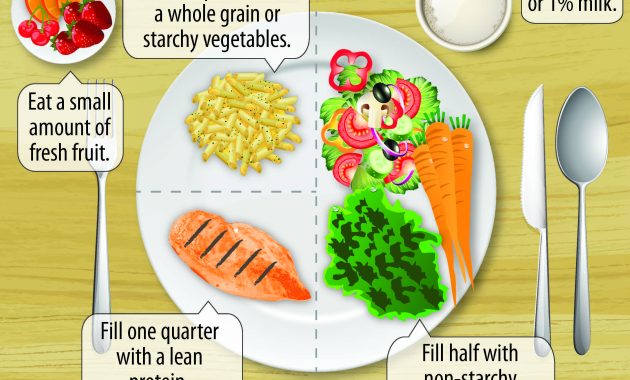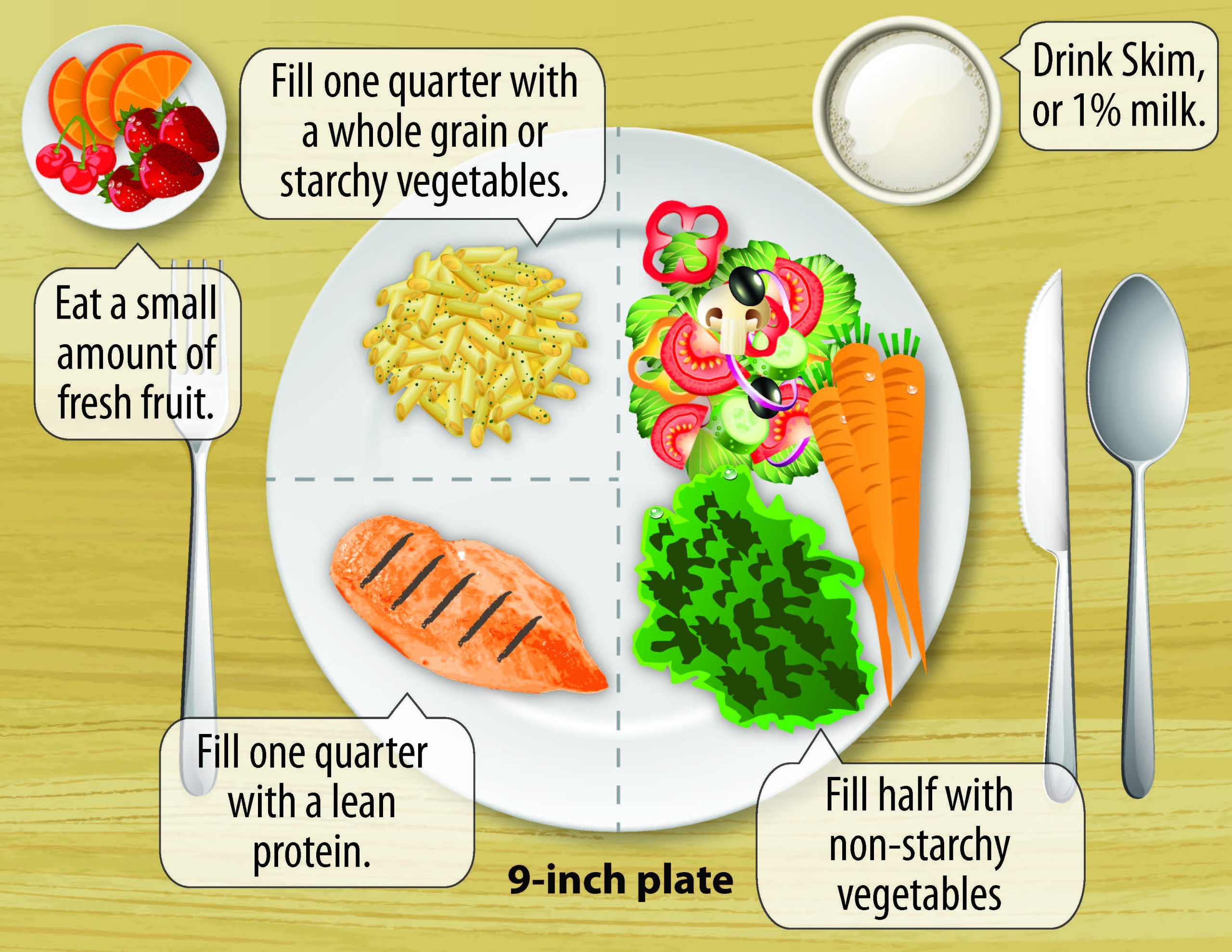
How to Master Diabetes Control With 3 Power Foods at Home
Managing diabetes can feel like navigating a complex maze. It requires constant vigilance, dietary adjustments, and often, medication. However, achieving effective diabetes control doesn’t have to be an overwhelming challenge. This article delves into how to master diabetes control with the help of three readily available, powerful foods that can be easily incorporated into your daily routine at home. We’ll explore the science behind these foods and how they can significantly impact blood sugar levels and overall health. This article aims to empower you with practical knowledge and actionable strategies for better diabetes management.
Understanding Diabetes and its Impact
Diabetes, in its various forms (Type 1, Type 2, and gestational diabetes), is a metabolic disorder characterized by elevated blood sugar levels. This occurs due to the body’s inability to produce or effectively use insulin, a hormone crucial for regulating glucose. Chronic high blood sugar can lead to severe health complications, including heart disease, kidney damage, nerve damage (neuropathy), and vision loss. Effective diabetes control is, therefore, paramount to prevent these debilitating consequences. Proper control involves monitoring blood glucose, adhering to a tailored diet, engaging in regular physical activity, and, if necessary, taking prescribed medications.
The Power of Food in Diabetes Management
Dietary modifications are a cornerstone of diabetes management. The foods we consume directly influence blood sugar levels. Choosing the right foods can help stabilize glucose, reduce the risk of complications, and improve overall well-being. The following three foods, easily integrated into home cooking, offer significant benefits for individuals striving for optimal diabetes control.
Food Number One: Leafy Green Vegetables
Leafy green vegetables, such as spinach, kale, and collard greens, are nutritional powerhouses. They are low in carbohydrates and calories, making them an excellent choice for people with diabetes. These vegetables are packed with vitamins, minerals, and antioxidants, which help protect against cellular damage. They are also rich in fiber, which slows down the absorption of sugar, preventing rapid spikes in blood glucose after meals. Incorporating a generous serving of leafy greens into your daily diet is a simple yet highly effective step toward better diabetes control. Consider adding them to salads, smoothies, or stir-fries. A diverse intake of leafy greens ensures a wide array of nutrients.
Food Number Two: Berries
Berries, including blueberries, strawberries, and raspberries, are naturally sweet, yet they offer a remarkable nutritional profile beneficial for diabetes control. They are relatively low in sugar and high in fiber, which, as mentioned earlier, helps regulate blood sugar levels. Berries are also loaded with antioxidants, particularly anthocyanins, which have been shown to improve insulin sensitivity and reduce inflammation. Studies suggest that regular consumption of berries can improve blood sugar control and potentially reduce the risk of heart disease, a common complication of diabetes. Enjoy berries as a snack, add them to breakfast cereals or yogurt, or blend them into a smoothie. Remember to consider portion sizes, as even natural sugars can impact blood glucose.
Food Number Three: Fatty Fish
Fatty fish, such as salmon, mackerel, and sardines, are excellent sources of omega-3 fatty acids. These essential fats have numerous health benefits, including reducing inflammation and improving heart health. Individuals with diabetes are at an increased risk of heart disease, making fatty fish an important dietary component. Omega-3 fatty acids can also improve insulin sensitivity, which helps the body utilize glucose more effectively. Fatty fish is also a good source of protein, which helps you feel full and satisfied after meals, reducing the temptation to overeat. Aim to include fatty fish in your diet at least twice a week. You can bake, grill, or pan-fry it, or even add it to your salads. Ensure you choose sustainably sourced fish whenever possible.
Meal Planning and Recipe Ideas for Diabetes Control
Effective meal planning is crucial for achieving diabetes control. Creating balanced meals that incorporate the three power foods discussed above is a practical approach. Here are some sample meal ideas:
- Breakfast: Smoothie with spinach, blueberries, and a scoop of protein powder.
- Lunch: Salad with grilled salmon, mixed greens, and a light vinaigrette dressing.
- Dinner: Baked cod with roasted kale and quinoa.
- Snack: A handful of berries or a small portion of almonds.
Remember to focus on portion control and balance your meals with healthy fats, lean protein, and complex carbohydrates. Consider consulting a registered dietitian or certified diabetes educator for personalized meal planning advice. They can help you tailor a dietary plan that meets your individual needs and preferences.
Lifestyle Adjustments for Enhanced Diabetes Control
Beyond dietary changes, several lifestyle adjustments can significantly improve diabetes control. Regular physical activity is essential for improving insulin sensitivity and lowering blood sugar levels. Aim for at least 150 minutes of moderate-intensity exercise or 75 minutes of vigorous-intensity exercise per week. This can include activities like brisk walking, swimming, or cycling. Managing stress is also crucial, as chronic stress can elevate blood sugar levels. Practice relaxation techniques such as meditation, yoga, or deep breathing exercises. Ensuring you get adequate sleep is also important, as sleep deprivation can negatively impact blood sugar control. Aim for seven to nine hours of quality sleep each night.
Monitoring and Seeking Professional Guidance
Regular blood glucose monitoring is essential for managing diabetes effectively. This allows you to track your blood sugar levels and adjust your diet, exercise, and medication as needed. Work with your healthcare provider to determine the appropriate frequency of blood sugar monitoring. Regular check-ups with your doctor are also crucial for monitoring your overall health and detecting any potential complications early on. Consider consulting a registered dietitian or certified diabetes educator for personalized guidance on meal planning and lifestyle modifications. They can provide valuable support and help you develop a sustainable approach to diabetes management. Remember, mastering diabetes control is a journey, not a destination. It requires consistent effort, patience, and a commitment to making healthy lifestyle choices.
The Role of Medication
While diet and lifestyle changes are fundamental, some individuals with diabetes also require medication to manage their blood sugar levels effectively. There are various types of diabetes medications available, including oral medications and insulin injections. Your healthcare provider will determine the most appropriate medication regimen based on your individual needs and the type of diabetes you have. It’s crucial to take your medication as prescribed and to communicate any side effects or concerns to your doctor. Medication, diet, and lifestyle changes work together to achieve optimal diabetes control. Never adjust or stop taking medication without consulting your doctor.
Embracing a Sustainable Approach
Mastering diabetes control is about making sustainable lifestyle changes that you can maintain long-term. It’s not about following a restrictive diet for a short period. Focus on building healthy habits that become a natural part of your daily routine. This includes incorporating the three power foods into your diet, staying physically active, managing stress, and getting enough sleep. Celebrate your successes and don’t get discouraged by occasional setbacks. Remember that even small improvements in your blood sugar control can make a big difference in your overall health and well-being. By embracing a proactive and informed approach, you can successfully master diabetes control and live a healthier, more fulfilling life. The key is consistency and seeking support when needed.
Conclusion: Take Control of Your Health
In conclusion, mastering diabetes control is achievable with the right knowledge, tools, and commitment. By incorporating leafy green vegetables, berries, and fatty fish into your diet, you can significantly impact your blood sugar levels and overall health. Coupled with regular physical activity, stress management, and adequate sleep, these dietary changes form a powerful foundation for effective diabetes management. Remember to consult with your healthcare provider and registered dietitian for personalized guidance and support. Take control of your health today by embracing these strategies and empowering yourself to live a healthier, more vibrant life. Effective diabetes control is within your reach. Focus on these power foods and take control.
[See also: Related Article Titles]

